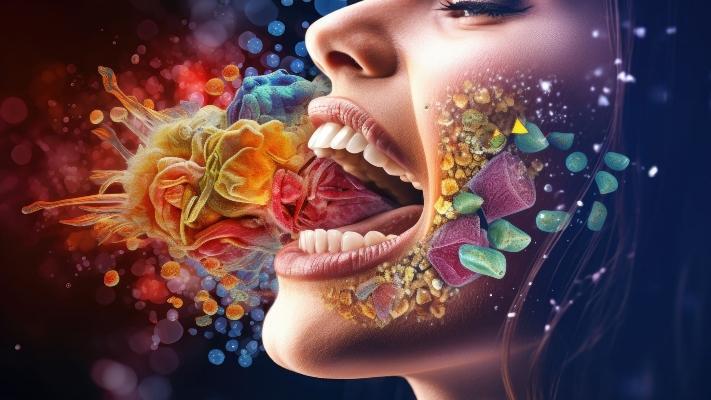Only severe cases of COVID-19 disrupt the oral microbiome, according to a recently published study.

The team, led by Abigail Armstrong, PhD, of Rutgers University of New Jersey, found no significant differences in the oral microbiomes of people who were and were not infected with SARS-CoV-2. However, they found a significant reduction in microbiome diversity in people with severe symptoms soon after infection.
The oral microbiome is active with both beneficial and harmful bacteria, numbering more than 700 species. Armstrong and her colleagues wanted to find out whether changes in the oral microbiome influence a person's susceptibility to contracting COVID-19. They also wanted to find out whether SARS-CoV-2 affects the oral microbiome and whether greater changes in a person's microbiome predict more severe consequences later in problems such as long COVID.
The team collected data from 831 health care workers and other community members over six months in the early days of the pandemic. The researchers regularly collected and tested saliva samples from the participants for signs of infection.
There was no evidence that any specific types of bacteria in the mouth and lungs, or combinations of bacterial types, provided protection against COVID-19, the researchers said. They also reported little change in people's microbiomes after they had mild to moderate cases of COVID-19.
However, shortly after infection, there was a significant reduction in microbiome diversity in people with severe symptoms, meaning that important events such as serious illness and treatment change this stable microbiome.
When comparing case histories, the researchers also observed significant differences between those whose symptoms lasted less than 30 days versus those whose symptoms lasted more than 60 days. They also reported that the oral microbiome of people with shorter duration of illness changed consistently during infection, while those with longer duration of illness changed differently. This particular finding suggests that there may be a specific way the oral microbiome changes during infection that helps reduce symptoms.
